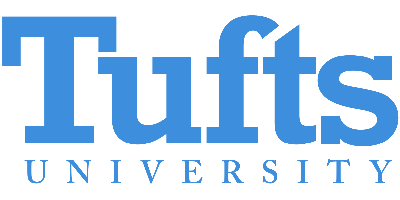Overview
The Luke and Lily Lerner Spay/Neuter Clinic provides students at the Cummings School of Veterinary Medicine with opportunities for both pre-clinical and clinical surgical training while serving pets and people in need. The Clinic provides high level spay neuter services to shelter and community animals while training veterinary students in the clinical competencies needed for anesthesia and surgery of healthy feline and canine patients. The pre-clinical surgical training programs run out of the Lerner Spay Neuter clinic include Introduction to Anesthesia and Small Animal Surgical Techniques (ISAAST), which is a required class for all third-year students, and the second-year clinical rotation elective. We offer a fourth-year clinical elective, Primary Care Procedures (PCP), which has a focus on spay neuter, other primary care surgery, and dentistry. We also run an outreach clinic for clients living in public housing and periodic Community Cat Clinics. Finally, we assist with dental training labs and other clinical skills laboratories run by our colleagues.
What You'll Do
The veterinary technician II is responsible for delivering high-quality technical assistance to the clinicians, students, house officers, clinic patients, and clients. Technical duties include providing high-quality anesthesia support to patients as well as teaching foundational anesthesia principles and surgical and dental preparation techniques to students and technicians. The veterinary technician stays abreast of new techniques and can instruct and train students in these areas. The veterinary technician works closely with other Lerner Clinic staff and promotes a team-oriented and productive working environment. The position should also be familiar with shelter medicine and be comfortable working in a very busy, high surgical volume setting. Essential Functions of a Veterinary Technician II will be: TECHNICAL SUPPORT:
- Provides technical and anesthesia support for all clinical programs, ensuring patient safety.
- Understands and is comfortable working with established patient protocols and treatment plans.
- Has a working knowledge of anesthesia and, with coordination from the clinic faculty, is able to make anesthetic protocol adjustments based on patient safety.
- Assists students and doctors with patient evaluation and sedation.
- Induces and monitors anesthesia or supports students in doing so.
- Ensures availability of necessary surgical and anesthetic supplies and equipment.
- Works with clinic administrator to ensure proper handling and record-keeping of controlled substances.
- Cleans and maintains anesthetic, surgical, and dental equipment in good working order.
- Helps organize and run orientation for ISAAST: admitting dogs, alerting faculty to issues of the dogs that may preclude their inclusion in the ISAAST program such as behavior or health issues, providing ISAAST students with orientation to the clinic, providing technical support to the students to assist them in physical examinations, venipuncture, and animal husbandry and behavior evaluation.
TEACHING:
- Provides hands-on instruction in anesthesia, surgical preparation and sterility, and dentistry for both pre-clinical required course (ISAAST) and the clinical year elective rotation (PCP).
- Assists Lerner faculty in preparation of didactic materials for ISAAST and PCP and in delivery of the materials during the introductory ISAAST lecture.
- Reinforces didactic material with students during the ISAAST course and PCP elective.
What We're Looking For
Basic Requirements:
- Knowledge and experience as typically acquired by High School diploma or equivalent and 3 years of experience as a veterinary technician
- OR
- An associate or bachelor's degree from an AVMA-accredited institution providing training in veterinary technology, veterinary nursing, or veterinary science plus 1 year of experience as a veterinary technician
- OR
- a Certified Veterinary Technician in good standing
- Demonstrated ability to work independently when completing basic tasks and procedural skills, and ability to conduct more advanced tasks under supervision
- Comprehensive understanding of medical terminology and veterinary pharmacology
- Demonstrated ability to provide excellent service to both internal and external customers
- Ability to be flexible to accommodate variable job duties and unpredictable workdays
- A desire to teach, including sharing knowledge and expertise with colleagues and students.
- Teaching also requires a commitment to ongoing professional development such as participation in Continuing Education and maintenance of credentials and certifications.
- * Experience with Microsoft Office and the ability to learn electronic medical record systems and other software systems
- Ability to work with a diverse student and client population
- Ability to lift up to 50 pounds with or without accommodation
Preferred Qualifications:
- CVT strongly preferred
- Driver's License
- Fear free certification
- Experience with electronic medical records
- Experience working within a post-secondary education environment
- Passion for primary care veterinary medicine education and supporting the community
Pay Range
Minimum $24.70, Midpoint $29.50, Maximum $34.20
Salary is based on related experience, expertise, and internal equity; generally, new hires can expect pay between the minimum and midpoint of the range.
|
 Tufts University
Tufts University
 Feb 06, 2026
Feb 06, 2026 
